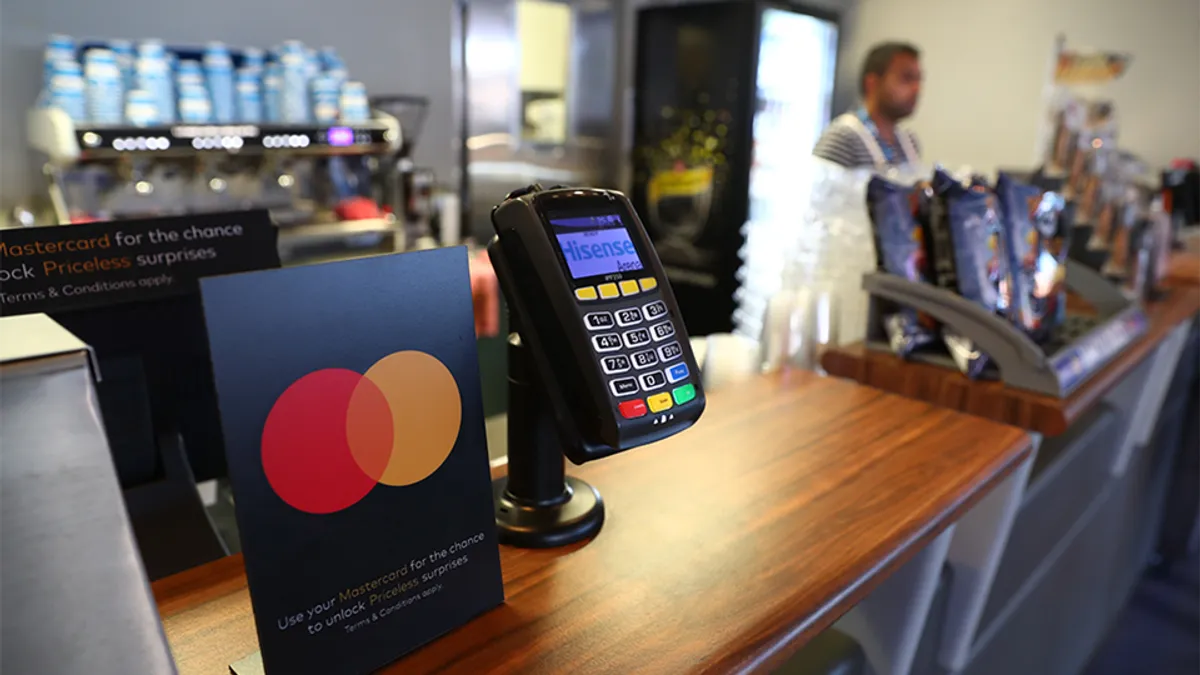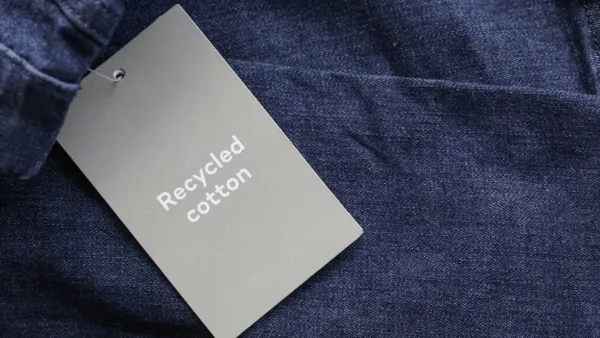Dive Brief:
- Mastercard decreased its total emissions 7% year-over-year in 2024 while increasing net revenues by 12% in the same period, continuing to decouple revenue growth from emissions, according to its latest impact report.
- The global payments company also reported last week it had surpassed a pair of 2025 emissions reductions targets to reduce its scope 1 and 2 emissions by 38% and scope 3 emissions by 20%, compared to 2016 baselines. The company has reduced its scope 1 and 2 emissions by 48% and scope 3 emissions by 45%, as of 2024, and remains “on track” to officially reach those targets at year's end.
- This is the second year in a row that Mastercard has reported a decrease in emissions and a rise in revenue, having first accomplished this in 2023. Mastercard Chief Sustainability Officer Ellen Jackowski previously told ESG Dive the global payments company had achieved this feat, without disclosing the final numbers.
Dive Insight:
Mastercard has a Science Based Targets initiative verified goal to reach net-zero emissions across its supply chain by 2040, compared to a 2016 base year, and reported a 46% decrease in its scope 1, 2 and 3 emissions by 46% compared to the baseline.
The company also said it has achieved carbon neutrality across its scope 1 and scope 2 emissions since 2020 through decarbonization initiatives, purchasing or generating 100% of its energy needs from renewable sources and buying “high-integrity” carbon credits “to address residual emissions.”
Mastercard said its operational emissions stayed steady in 2024, despite an increase in energy usage “primarily driven” by data center growth. Data center operations accounted for 60% of Mastercard’s scope 1 and scope 2 emissions last year. The company credited an increase in renewable energy production, in part, for its operational emissions staying relatively steady, and reported purchasing or generating 112,910 megawatt hours of renewable energy in 2024.
“We're very excited about the progress we've been able to make,” Mastercard’s CSO said in an April interview. “We certainly recognize that the pathway to net zero is not linear, and — especially as we look at some of the increasing compute power, data centers and AI capabilities that we need to continue to build — we're watching very carefully and managing how to add the compute capability that we need, while managing to stay very actively on track towards our net-zero goal.”
Jackowski said Mastercard focuses first on how to reduce its own operations, but recognizes it is “in a very unique position to help enable more environmentally conscious choices” as a payments processor for over 150 million merchants and more than 3.5 billion cards in circulation.
The company’s suppliers account for 76% of its overall greenhouse gas emissions, according to the impact report. More than 7 in 10 of Mastercard’s suppliers (71%) have their own science-based emissions reductions targets. The global payments company said its scope 3 emissions decreased 10% in 2024.
The report comes a few months after Mastercard announced solar and geothermal projects for its tech hub in Missouri and headquarters in New York on Earth Day. The payments company acquired 40 acres of land to build a solar array at its O’Fallon, Missouri, tech hub and is replacing its natural gas-powered heating and cooling system at its Purchase, New York, headquarters with a geothermal energy system.











